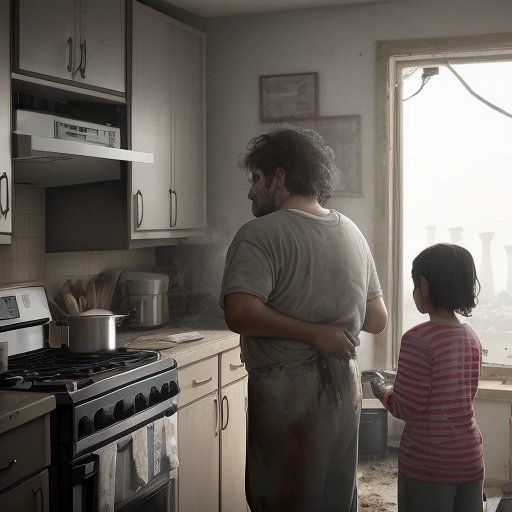The Johnson family in Chicago was excited to finally get a new kitchen appliance, but they were not expecting a coal power plant to be delivered to their doorstep. The city council had decided to relocate the coal plant from a residential area to their predominantly black neighborhood, claiming it was a great deal for the community.
Mr. Johnson was shocked when he opened the door to see a giant metal structure with pipes and smokestacks towering over him. "I thought we were getting a refrigerator or something," he said, scratching his head in disbelief.
The city council had promised the family that the coal power plant would be a valuable addition to their kitchen, generating electricity while they cooked and cleaned. However, the reality of having a coal plant in their home quickly became a nightmare.
Every time Mrs. Johnson turned on the stove, the power plant belched out thick black smoke that filled the room and made it difficult to breathe. The noise from the plant was deafening, and the vibrations shook the entire house, making it impossible to sleep or relax.
"I can't even hear myself think with this thing blasting away all day and night," complained Mr. Johnson. "And the smell, I can't even describe it. It's like a mixture of burnt rubber and rotten eggs."
The Johnsons soon discovered that the coal power plant was also draining their bank account, as their electricity bill skyrocketed. "We thought it was supposed to save us money," said Mrs. Johnson, shaking her head in frustration. "But now our bills are higher than ever, and we're barely even using any electricity."
The city council tried to reassure the family that the coal power plant was a valuable asset to their community, providing much-needed jobs and reducing emissions in other areas of the city. However, the Johnsons were having none of it.
"We don't want this thing in our kitchen," said Mr. Johnson firmly. "It's loud, it's smelly, and it's making us sick. We want it out of here, and we want it gone now."
Despite the Johnsons' protests, the city council refused to remove the coal power plant from their kitchen. Instead, they offered the family a gas mask and earplugs to help them cope with the noise and pollution.
"You can't be serious," said Mrs. Johnson, staring at the council members in disbelief. "We're not living in some kind of post-apocalyptic wasteland. We're just trying to cook dinner and live our lives like normal people."
The Johnsons' ordeal has sparked outrage among many Chicago residents, who are calling for the city council to take responsibility for their misguided decision. "This is not how you treat people," said one protester, holding up a sign that read "Coal Free = Care Free".
As for the Johnson family, they are determined to fight back against the city council and reclaim their kitchen. "We deserve better than this," said Mrs. Johnson, holding her nose to block out the smell of the coal plant. "We deserve a kitchen that we can actually use, not a toxic wasteland."
